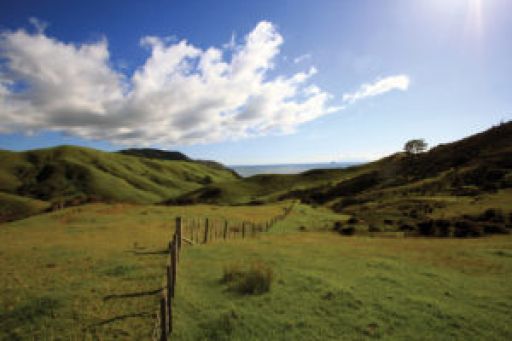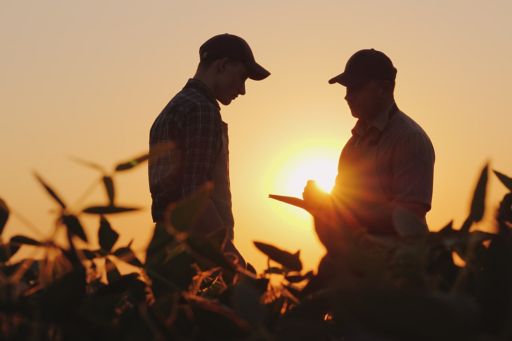Week in Review
This week in New Zealand, policy and regulation related stories are seen across several industries, with many speaking out for support or policy change. Amongst these stories are further calls to establish carbon forestry limits, distaste about taxpayer funding of the recent anti-dairy film Milked, and concerns about the complete long-term ban of livestock trade and the expected repercussions.
Internationally, we hear of new cultivated meat deals and some top emerging plant-based trends for 2022, however we also see plant-based meat sales drop in the US and research that highlights poor vegetarian and vegan diets being linked with negative mental health outcomes.
Article of the Week
This week KPMG Propagate Manager Paulette Elliott digs through the data to demonstrate the information overwhelm in environmental claims and labelling schemes as we head into Christmas
You can access the article here.
Previous issues
To read previous editions of Field Notes please click here.
Spotlight Stories
Red Meat Spotlight:
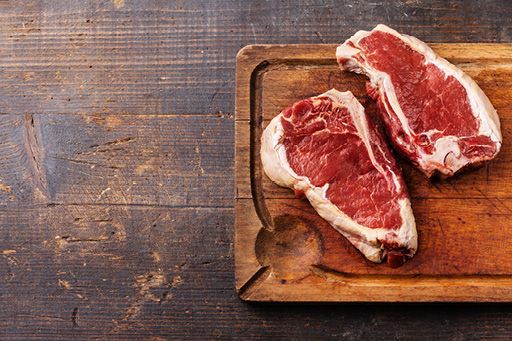
Tightening global beef market set to 'support strong pricing for Kiwi producers' [30 November, Voxy]
According to Rabobank’s latest global Q4 Beef Quarterly report, the global beef market is set to tighten further in 2022, adding to already strong demand and supporting upward pressure on prices. The global supply continues to be constrained by contraction in US beef production, sluggish post-drought herd rebuilding efforts in Australia and export disruptions from the main South American exporting countries of Brazil and Argentina. North Island bull prices reportedly lifted above NZD6.50/kg at the end of October, setting a new seasonal record.
Tag: Red Meat, Trade & Exports
Food Safety Spotlight

‘Long-term poisoning’: should Australia’s food safety standards consider health issues like obesity? [27 November, The Guardian]
A review of the Food Standards Australia and New Zealand (FSANZ) Act is currently grappling with decisions about whether food labelling should reflect the ingredients associated with longer-term harms, such as obesity, heart disease and cancer. Public Health Association of Australia CEO Terry Slevin says the long-term harms fall within the aims and objectives of the food regulatory system of “always be protecting public health and safety.” However, such labelling is said to affect the strong and profitable industry due to consumer behavioural changes.
Tag: International, Food Safety, Policy and Regulation
This Week's Headlines

11 Plant-Based And Alternative Protein Trends To Watch For In 2022 [30 November, Forbes]
Last year, many plant-based and alternative protein trends emerged, ranging from plant oils and milks to vegan fish substitutes. This year, some of these trends have continued to grow with the addition of a few new ones. These include veggie-meat hybrid foods, vegan butter, potato milk, functional mushrooms also known as adaptogens, veggie-friendly food service, plant-based gourmet, zero-waste movement, healthier plant-based meats, intersectional collaborations, cell-cultured meat in stores and fermentation.
Tag: International, Food Marketing
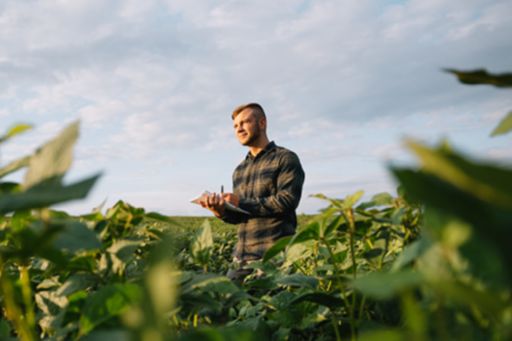
Is farm-specific emission pricing possible? [29 November, Stuff]
He Waka Eke Noa Primary Sector Climate Action Partnership is proposing two alternatives to the Emissions Trading Scheme: a farm levy and a processor hybrid levy. Both options reportedly incorporate different levy rates for short-lived biogenic methane and long-lived nitrous oxide and carbon dioxide gases. The farm levy calculates emissions using farm-specific data and then the farm pays a price for its net emissions. In contrast, the processor hybrid levy calculates emissions at the meat, milk and fertiliser processor level and is based on the quantity of product received from farms or, in the case of fertiliser, sold to farms.
Tag: Environment & Emissions, Farmers & Producers, Policy and regulation
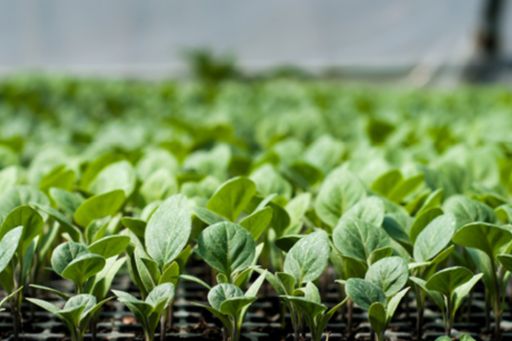
NZ grows more than enough vegetables but doesn't eat enough of them [November 29, Stuff]
A study in the journal Earth finds that New Zealand produces more than enough vegetables to meet the five-plus-a-day recommended nutritional guidelines, however, New Zealanders still don’t eat enough vegetables. With the recommended intake of at least 5 servings of vegetables per person per day, New Zealand grows the equivalent of 11.7 servings.46% of adults reported that they eat two or less vegetable servings a day and, overall, men reported consuming fewer vegetables than women. Those living in higher deprivation areas are eating even fewer vegetables.
Tag: Horticulture, Health & Nutrition, Food Retail
Top stories
Food exporters' vaccine mandate put on ice [24 November, RNZ]
The introduction of a vaccine mandate for food exporters has been temporarily put on hold while the sector is instead being encouraged to use a new assessment tool to help employers figure out which of their staff need to be vaccinated. The tool will be released next month and is reportedly still being refined but is likely to assess four factors - the environment an employee works in, whether they work near others, if that is for long periods, and whether they provide services to people who are vulnerable to Covid-19.
Tag: Covid-19, Trade & Exports, Red Meat
Halal-certified red meat exports jump [25 November, Farmers Weekly]
According to the Meat Industry Association (MIA), halal-certified red meat exports increased by 13% during the 2020-21 season, with China purchasing 341,618 tonnes, 74% of the total and a 23% increase on the previous year. MIA chief executive Sirma Karapeeva says she is seeking long-term solutions with the government to facilitate the entry of migrant halal butchers. A special visa category would be needed to fill the approximate 150 halal butcher positions around the country each year and ensure New Zealand’s lucrative halal meat exports continue their strong growth.
Tag: Red Meat, Trade & Exports
Fonterra launches 'milk tap' trial for cafes in NZ's coffee capital, Wellington [26 November, Stuff]
Fonterra Co-operative Group has installed its first “milk tap” into a cafe in Wellington as part of a trial for a more sustainable way to serve coffee. The milk tap, sourced from Israeli company Milkit, is connected to a 10-litre recyclable milk bladder in a fridge which replaces five 2-litre standard bottles of milk, resulting in 65% less plastic. The co-operative is the largest supplier of milk to cafes across the country, and if the trial is successful the initiative could be rolled out to many of its 2500 cafe customers.
Tag: Dairy, Environment & Emissions
RA research will benefit some regions more than others – report [25 November, Rural News Group]
The report entitled “Place-based approaches to assessing the impact of regenerative agriculture in New Zealand” is one of four new reports that consider ways to monitor and measure benefits to New Zealand from regenerative agriculture, particularly in response to region-specific issues and opportunities. It describes techniques and practices that address issues across the nation, such as surface erosion caused by winter forage cropping, climate change, low soil carbon levels and water quality.
Tag: Farming Systems, Research & Development, Environment & Emissions
Residents take up arms in Central Otago as rampant rabbits ruin land [27 November, Stuff]
An influx of rabbits has destroyed more than 7000 grape vines, chewed through fence posts and rose gardens, and left properties in Central Otago potted with holes, costing landowners thousands of dollars. Some residents have resorted to buying firearms to deal with the problem. Commercial hunter Sheldon Lye doubted the Otago Regional Council’s ability to handle the problem alone. “They have good intentions, but they don’t know what they are talking about, they are administrators and have had no experience killing rabbits. It is not one-size-fits-all, and they don’t understand it,” he adds.
Tag: Horticulture, Viticulture, Boisecurity
Inflation stalks NZ agriculture [26 November, Farmers Weekly]
According to the Reserve Bank, inflation is currently 4.9% with an expected increase to 5.7% in the first quarter of next year, and its presence has been assessed as “somewhat transitory.” Independent economist Cameron Bagrie says the dairy industry is one of those that can benefit from inflation, but core on-farm costs are rising strongly, some 15% over the past three years. It is now important “to have hard conversations about things like water and resources, benefit dependence, lack of competition, compliance costs and infrastructure,” Bagrie says.
Tag: Agribusiness
Game-changer for NZ’s hemp industry [26 November, Farmers Weekly]
Levin-based company Hemp Connect has researched equipment from all over the world to find ways of getting the most out of every hemp seed, enabling locally grown hemp food products to compete with imported varieties. By increasing the scale of production, new product developments such as husk by-products, hemp sprouts and animal feed will become more economically viable, managing director Mathew Johnson said. The research has been backed by the Ministry for Primary Industries through contributions of more than NZ$245,000.
Tag: Arable
Fight to eradicate wilding pines far from over – expert [29 November, NZ Herald]
Lead investigator Dr Duane Peltzer of a nationwide fight against wilding pines says work must continue in the challenge to eradicate wildings. "The hardest thing with weeds is if you stop you actually lose the game so the things that we're really concerned about next is the reinvasion,” Dr Peltze said. He adds that the spread risk is driven by variation in seeds within individual trees rather than a few risky trees being the main cause of an invasion.
Tag: Biosecurity, Forestry
Two-year closure for Waiheke scallop, mussel, rock lobster and pāua fisheries [29 November, Voxy]
The Waiheke Island scallop, mussel, rock lobster and pāua fisheries will close for a period of two years from 1 December to help the fisheries recover and support the health of the wider ecosystem. The temporary closure includes inshore waters around Waiheke Island out to a distance of one nautical mile offshore, and applies to customary, commercial, and recreational fishing. The closure follows a decision on 31 January by Ngāti Pāoa to place a traditional rāhui on these fisheries, after concern from iwi about declining stock levels.
Tag: Fisheries, Environment & Emissions
Taxpayers part-funded anti-dairy film [29 November, Farmers Weekly]
The Taxpayers Union has revealed that taxpayers contributed NZ$48,550 towards the anti-dairy farming documentary Milked, which argues that dairy farming causes climate change, pollutes water, destroys wetlands, abuses cows and causes high suicide rates among farmers. It claims milk is not wholesome or crucial to a diet, that the industry is based on what it calls ‘white lies’, and that it is a money-driven industrial-scale business. The documentary received contributions from Greenpeace, animal welfare activists SAFE, the Green Party and includes many interviews from animal welfare and vegan activists.
Tag: Dairy, Policy and Regulation
Livestock export ban escalating [29 November, Farmers Weekly]
The Government has proposed a Bill to amend the Animal Welfare Act making the ban on sea freight for exporting livestock permanent, therefore, making it difficult for any future governments to reverse the ban and potentially close the door on livestock trade for good. The Animal Genetic Trade Association (AGTA) are ‘not going down without a fight’ and have been working hard to encourage submissions against the Bill. “The level of urbanisation around the world is affecting food security and we are in a position where we can and should help,” AGTA technical advisor Dr Jim Edwards argues.
Tag: Policy and regulation, Animal Welfare
Calls growing for carbon forestry limits [29 November, Farmers Weekly]
Beef + Lamb New Zealand has welcomed the formation of the Native Forest Coalition, saying the “growing chorus against unchecked carbon farming cannot be ignored”. The coalition released a policy statement and recommendations on native forests, highlighting what it sees as the urgent need to stop the rapid proliferation of pine plantations driven by high carbon prices and short-term policy settings. It strongly favours prioritising native forestry over exotics and argues that before seeking offshore carbon forest credits, government should invest in native forests at home.
Tag: Environment & Emissions, Policy and regulation, Forestry
Green light for collective bargaining [26 November, Rural News Group]
The Commerce Commission has provisionally authorised New Zealand Tegel Growers Association Incorporated to collectively negotiate on behalf of its members the terms and conditions of its members’ supply of chicken growing services to Tegel Foods Limited. The benefits of collective negotiation include the potential to reduce transaction costs and reach a more sophisticated agreement. The Commission says it also considers that allowing this interim arrangement is unlikely to materially affect the market in a permanent way.
Tag: Poultry, Policy and Regulation
Nestlé NZ goes 100% renewable electricity, hybrid vehicle fleet slated for 2023 [29 November, Food Ticker]
Nestlé New Zealand says it has transitioned to 100% renewable electricity with the rest of the global organisation working towards a 2025 target. It made the switch by purchasing renewable electricity certificates to cover all electricity used across its sites each year – the equivalent of 833 households. “In the coming year, we are planning to start transitioning our fleet to hybrid vehicles to reduce emissions, extend the work we are doing to improve cocoa sustainability and further reduce the amount of virgin plastic we are using.” Says Chief executive Jennifer Chappell.
Tag: Agribusiness, Environment & Emissions
Poorest face food crisis amid fertiliser shortage [27 November, BBC]
According to a major fertiliser firm Yara International, a global shortage of fertilisers is driving up food prices and leaving poorer countries facing crisis. Less fertiliser means farmers in developing countries would not be able to plant as efficiently, leading to smaller crops, says chief executive Svein Tore Holsether. "It's impacting food prices all over the world and it hits the wallets of many people. But for some people, especially in the developing world, this is not only a question about the wallet, but it's a question of life or death,” he adds.
Tag: International, Food security
Greenlea cooks up wholefoods plan [30 November, Food Ticker]
Greenlea Premier Meats has invested around NZ$500,000 into its Restore Wholefoods subsidiary as part of its future-focused strategy of adding value to “every part of the carcass” and moving into a direct-to-consumer model. This included buying the Restore brand and IP, trademarking the brand, buying equipment and recommissioning floorspace at Greenlea’s Morrinsville plant for broth production, which now sits at around 8,000 litres a week across seven SKUs. The product is now ranging in Farro Fresh, New World, Four Square and Pak’nSave, and is also pushing into export markets.
Tag: Red Meat, Food Innovation, Food Marketing, Trade & Exports
JBS to bring cultivated meat to market by 2024 with BioTech Foods deal [29 November, Food Navigator]
Meat major JBS has said it expects to bring cultivated meat to the European market by 2024 after acquiring control of Spanish start-up BioTech Foods. The acquisition marks JBS’s entry into the cultivated protein space and comes as the company diversifies its portfolio to include emergent areas such as plant-based products. “This acquisition strengthens our strategy of innovation, from how we develop new products to how we commercialise them, to address global demand for food”, said Gilberto Tomazoni, Global CEO of JBS.
Tag: International, Alternative Proteins, Food Innovation
Hunger increased by 30 percent in Latin America since 2019: UN [30 November, Aljazeera]
The number of hungry people in Latin America and the Caribbean has risen by 30% since 2019 to reach its highest level in 15 years, a coalition of United Nations agencies said, calling the situation “critical”. More than 59 million people across the region currently are not getting enough to eat, an increase of 13.8 million people in just one year, and more than 9% are going hungry. Along with the people going hungry in absolute terms, four out of every 10 people in Latin America and the Caribbean (267 million people) experienced moderate or severe food insecurity in 2020, said the UN.
Tag: International, Food security, Covid-19
Plant-based problem? Vegans and vegetarians with taste for processed products more susceptible to depression - study [30 November, Food Navigator]
New research based on 219 vegans and vegetarians in Australia has found that those with diets high in fresh fruit, vegetables, nuts, seeds, legumes, and whole grains were at a lower risk of depression than those with low-quality diets. The lead author of the study Dr Lee said the protective effect of a high-quality plant-based diet was likely due to the presence of complex carbohydrates, fibre, probiotics and antioxidants, which have all been found to decrease symptoms of depression.
Tag: International, Research & Development
Plant-based meat loses its sizzle in US as sales fall [November 29, Swift Headline]
According to the US retail data group SPINS, in the four weeks to October 3, sales of plant-based meat alternatives fell 1.8% compared to the year before, taking declines for 2021 to 0.6%. Beyond Meat chief executive Ethan Brown blamed consumers making fewer shopping trips and being less open to trying new products. He also mentioned reduced opportunities for sampling products as the Delta variant spread limited consumer exposure. An increase in production capacity to cut costs and implement more research and development were reportedly essential for the category to continue growing.
Tag: International, Alternative Proteins, Food Marketing
Get in touch
| Audit – Auckland Ian Proudfoot 09 367 5882 iproudfoot@kpmg.co.nz |
Management Consulting – Wellington Justine Fitzmaurice 04 816 4845 jfitzmaurice@kpmg.co.nz |
Agri-Food – Auckland Jack Keeys 09 363 3502 jkeeys@kpmg.co.nz |
Private Enterprise – Hamilton Hamish McDonald 07 858 6519 hamishmcdonald@kpmg.co.nz |
| Agri-Food – Auckland Andrew Watene 09 367 5969 awatene@kpmg.co.nz |
Consultant – South Island Genevieve Steven 03 307 0761 gsteven@kpmg.co.nz |
Farm Enterprise – South Island |
Field Notes Administrator |

